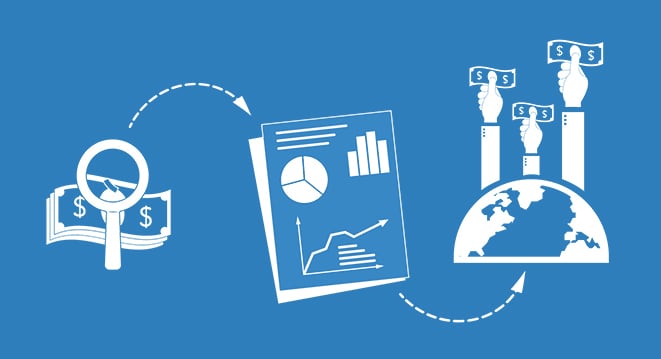Nonessential business closures in the wake of COVID-19 have affected warehousing and shipping. Here’s what you need to know about the shipping impact of current and future restrictions.
As COVID-19 cases spiked worldwide, businesses closed their doors and hoped for the best. Whether you’re running a brick and mortar store or an eCommerce business, you’ve no doubt been affected by these nonessential business closures. The ramifications have been far-reaching with supply chain interruptions, warehousing staff shortages, delayed shipments, and fluctuating demand.
For businesses of all sizes, COVID-19 has been a worst-case scenario. It has also been a lesson — albeit a painful one — in what it means to be a nonessential business and how to keep the lights on during a pandemic.
The United States has begun reopening. States across the country are in various stages of the White House’s three-phased approach, which dictates reopening based on downward trending cases, an ability for ICUs to treat patients, contact tracing/testing, and other factors. As of June 22, California is imposing the most stringent restrictions. Alaska, in contrast, has no restrictions, and states including Florida, Georgia, Arizona, and Nevada have only minor restrictions.
As business owners continue to navigate the new normal, it helps to better understand how nonessential businesses are impacted. Here is what you need to know, including some tips on managing shipping if closures increase.
What makes a business nonessential?
If you have been confused by nonessential business closures, you’re not alone. Nonessential business closures vary by state. While some states completely shut down just about everything in March, others made it possible for nonessential businesses to open with specific requirements in place, such as reduced capacity, curbside pickup only, and strict cleaning procedures.
This begs the question: What exactly is a nonessential business?
Again, the answer varies by state, but this label typically applies to retail operations (other than grocery stores, convenience stores, and pharmacies), dining, and entertainment. In short, any business with close person-to-person contact that is not related to basic human needs.
For businesses that rely on shipping, it is worth noting that transportation, warehousing, and shipping are considered essential.
An early warning from Amazon
In March, Amazon customers logged on to find a shocking number of out-of-stock products along with delivery times as long as a month. This surprised consumers, who have become used to Amazon’s speedy one- to two-day fulfillment times. Some experts speculated that this was in part due to Amazon trying to discourage customers from ordering certain items, but it was largely the result of Amazon’s increased focus on stocking and delivering essential items only.
In some countries, such as Italy and France, Amazon began only delivering essential items. In other countries, essential items were simply prioritized. This forced nonessential Amazon sellers to figure out fulfillment on their own. Suddenly small businesses had to handle warehousing, packaging, and shipping. This affected 2.5 million sellers.
Logistics woes
eCommerce businesses that don’t use Amazon have certainly not been immune to the effects of COVID-19. If you were classified as a nonessential business or you are classified as such in the future, you should be ready for issues with your logistics.
These disruptions could be due to the location of your distribution center, especially if it is understaffed, operating in a location with increased restrictions, or closed completely. Distribution centers must be deemed essential to operate, and even if yours does operate, nonessential products might not get priority handling.
What to do during a nonessential business closure
If you are unsure about whether or not your business is considered essential, look to the state or states where you operate. Each state should have a list of businesses it deems essential and a form that allows you to request specific information about your business.
When this happens, be proactive with your customers. Modern businesses, especially eCommerce businesses, stake their reputations on fast delivery. If this standard cannot be met due to supply chain interruptions, it is wise to be transparent with customers and set expectations for shipping times. A customer who knows their item may take up to two weeks to arrive will be much more understanding than someone who is expecting delivery within a few days.
You may also want to offer extended returns or exchange periods. If you do, be sure to communicate these services for each phase of reopening.
Help from 71lbs
During COVID-19, customers have come to rely more on online shopping, which means businesses can’t afford to waste money on shipping. 71lbs is here to help you during these challenging times and during less chaotic times by saving you money. We do this via an automated platform that offers insight into shipping costs, making sense of refunds, imports, shipping insurance, and other factors that eat up your budget. To learn more, start by getting in touch.



